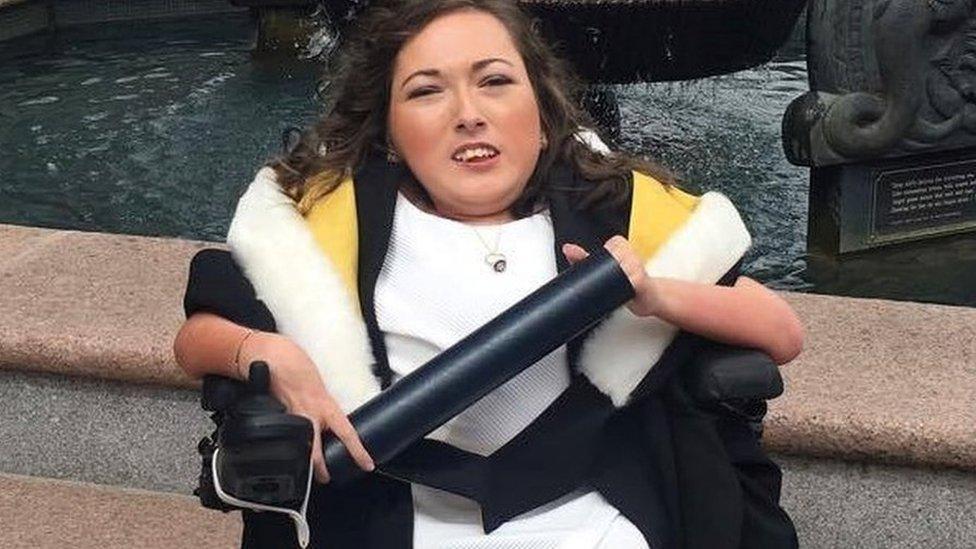'I need support to realise my teaching dream'
- Published
Katy fears her university education could suffer without support in helping her transition.
The prospect of leaving school at 17 is always difficult but Katy Orr has extra obstacles to overcome.
Katy, from Ayrshire, has a severe visual impairment, with only 20% vision in her left eye and none in her right.
She has an ambition to become a primary school teacher and wants to attend university next year.
But Katy is concerned about the lack of transition planning and fears that without proper support her university dream may be jeopardised from the start.
She told BBC Scotland News: "There appears to be a significant gap in communication between my school and the university regarding my needs.
"I've taken the initiative to visit university open days and inquire about support services myself.
"However, I'm left wondering why more hasn't been done proactively by my school.
"Perhaps they lack experience with students who, despite their disabilities, are eager to pursue higher education and a fulfilling career."
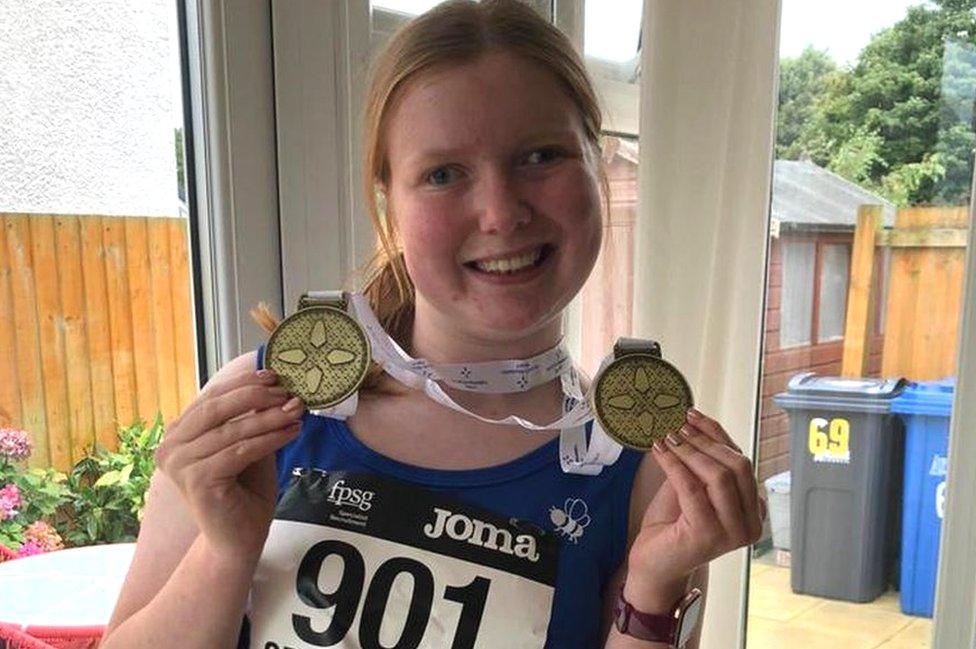
Katy has an ambition to become a primary school teacher and wants to attend university next year
Katy fears the absence of a support plan means she is at risk of falling behind in her studies, if the necessary adjustments are not in place when she starts university.
And she adds the lack of a clear plan is heightening her anxiety about the future.
Every year in Scotland young people with additional support needs - including those with complex disabilities - prepare to leave school.
Young people, parents and charities say local authorities are well aware of this transition but many often fall short in devising effective plans for their futures.
This lack of planning places immense pressure on families and many find themselves struggling to provide the necessary support once their children leave the education system.
Ill-prepared transitions
Currently, there is no legal rule that requires a specific transition plan for young disabled people leaving school.
However, the Compass Pro guidelines highlight certain responsibilities that support services should meet.
This includes setting a budget early on and providing crucial details six months before the student leaves school.
The only plan with actual legal weight is the Co-ordinated Support Plan (CSP).
Everyone involved is legally required to stick to the CSP but critics of the current system say this is probably why some schools or authorities might be cautious about agreeing to it.
Rob Holland, director of the National Autistic Society Scotland, has expressed concern about the gravity of these ill- prepared transitions.
For young autistic people, the shift in routines and environments can be particularly difficult, often leading them into a less supportive setting.
Mr Holland warned the risks involved included unemployment, social isolation and potential mental health issues.
He, along with other experts, passionately believes that with proper planning and resources, these young adults could have a promising future.
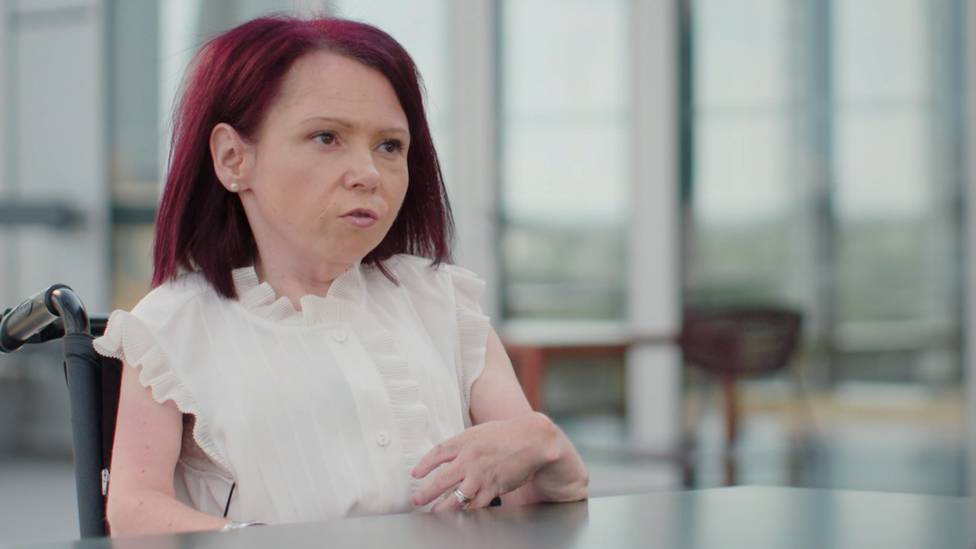
Pam Duncan-Glancy MSP recently proposed a Member's Bill to the Scottish Parliament focusing on educational transitions
Pam Duncan-Glancy, Scottish Labour's education spokeswoman, recently proposed a Scottish Parliament Member's Bill focusing on educational transitions.
It is designed to start planning for transitions at the latest by age 14.
The MSP, who herself uses a wheelchair, said existing legislation fell short and the bill aimed to fill the gaps, specifically in coordination and support for disabled young people.
Ms Duncan-Glancy said disabled people were three times less likely to be in education, employment, or training after school.
In the long term, this has adverse effects on their mental, physical, and financial well-being.
She added that she had to defer her own university entry by two years due to insufficient planning for her disability.
Enable Works, part of Enable Scotland, a charity dedicated to supporting people with learning disabilities, is working with families, schools, and students to refine the transition process.
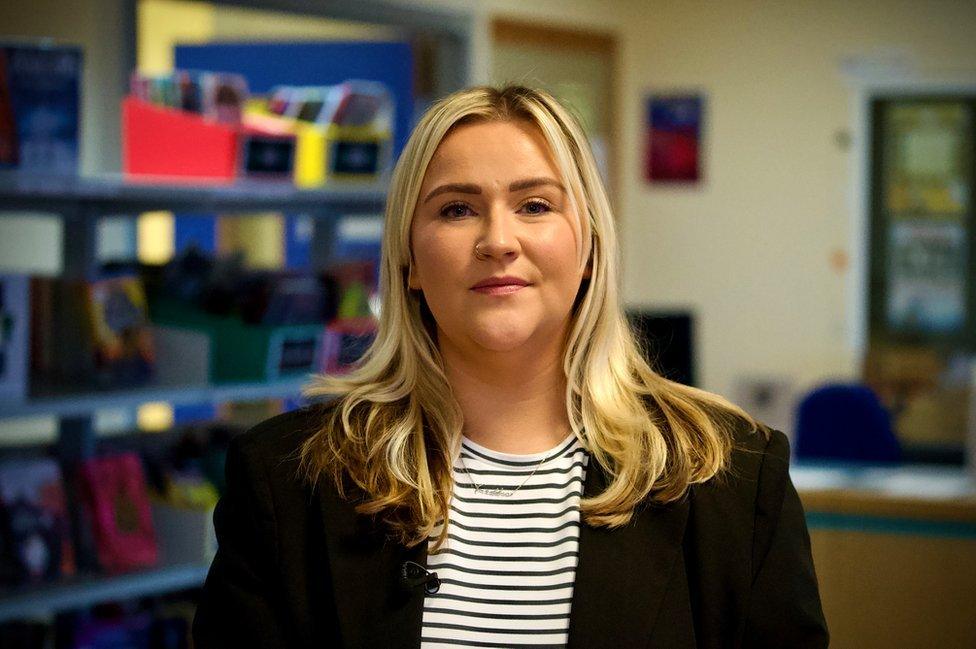
Emma Smart said young disabled people who don't have a positive direction upon leaving school are four times more likely to be unemployed by the age of 25
Emma Smart runs the Stepping Up programme, which operates in 100 schools.
She said the aim was to guide participants from the initial exploration of job opportunities to a successful outcome.
Ms Smart added: "They undergo work placements, engage with potential employers, access colleges, and develop CVs and interview skills, essential tools for life post-education.
"Young disabled people who don't have a positive direction upon leaving school are four times more likely to be unemployed by the age of 25.
"There's a significant opportunity gap, and it's crucial that every young person has a support network striving for their betterment."
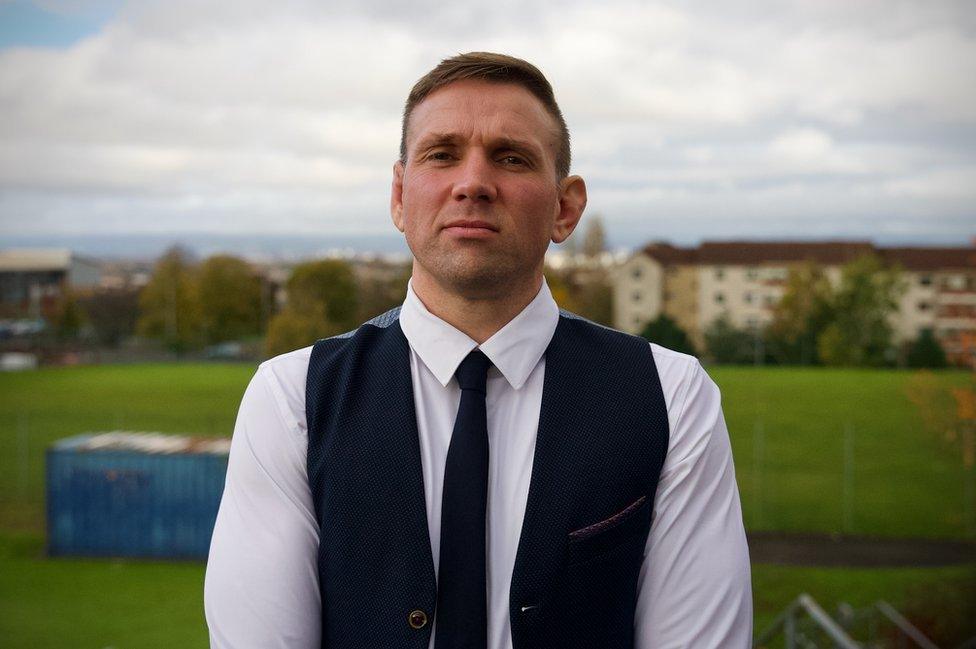
Gary Muirhead says that because of their personal needs, they often require tailored care support
St Oswald's, a secondary school for children with additional support needs in Glasgow's Castlemilk, starts the process in S4.
Deputy head teacher Gary Muirhead said: "We offer a college programme for S5 and S6 students, building a bridge to their next steps, whether that's college or another positive destination.
"Because of their personal needs, they often require tailored care support."
The challenge for teachers like Gary is to ensure the right support systems are in place before they leave.
The Scottish government said: "We will introduce Scotland's first National Transitions to Adulthood Strategy in this parliamentary term to ensure that disabled young people in Scotland have a positive and supported transition to adult life.
"Our Statement of Intent for this strategy, which was published in September this year, lays out the proposed scope, vision and priorities needed to meet our commitment."
A South Ayrshire Council spokesperson said: "We're committed to ensuring that all young people experience effective and positive transitions.
"This includes transitions between schools and as they move to post school destinations."
It added staff will work with young people, parents/carers and partner organisations to ensure that transition plans were "in place and reviewed regularly".
The spokesperson said: "It is essential that young people are able to influence their transition plan and any feedback that they provide should support any required changes.
"Further feedback can be shared with colleges and higher education institutions to support their work in developing transition supports for young people post school."
Related topics
- Published20 September 2021
